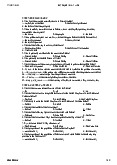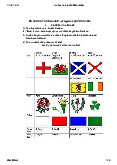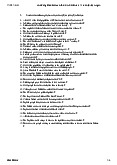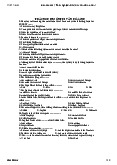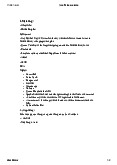

Preview text:
1. Based on what you have studied, write an overview of the Prime Minister of Britain.
-The Prime Minister of the United Kingdom is
the head of government and leader of the Cabinet. They are typically the leader of
the party with the most seats in the House of Commons. Key roles include leading
the executive branch, setting the policy agenda, making executive appointments, and
representing the UK abroad. The incumbent Prime Minister as of August 2023 was
Rishi Sunak of the Conservative Party.
2. Many MPS in modern times are expects in various fields of government.
Because of the complexity of modern government, this is something which
seems to be necessary . But it could be said to have disadvantages , too. What
do you think these disadvantages are? -MPs specializing in narrow fields could
lack a broader understanding of interconnected issues. Relying too heavily on
subject-matter experts also risks groupthink and overlooking unintended
consequences. There's a risk of MPs prioritizing their areas of expertise over other
crucial matters. Additionally, overly specialized knowledge may hinder clear
communication with constituents on complex topics. 3.To Britons, what
are” national loyalties” ? How does this concept differ from that of your country?
-For Britons, "national loyalties" refer to a sense of allegiance
and pride in being British, upholding British values, traditions and institutions. This
patriotic sentiment differs from the idea of American national loyalty, which is more
focused on upholding Constitutional ideals like democracy, individual rights and rule of law.
4.What are some distinguishing features of the land in Britain?
-Britain is an island nation with varied landscapes. Rolling green hills and pastures
dot the countryside. Dramatic sea cliffs line the coastlines. Ancient castles and stone
villages preserve history. Major cities like London contrast with rugged mountain
ranges in Wales and Scotland. Rivers, lochs, and moors diversify the terrain. 5.Why
do you think the monarch still exists until now even though the King/ Queen
does not have political power?
-The monarchy remains an enduring symbol of
national identity and tradition in many nations. While its role is largely ceremonial, it
serves as a unifying cultural emblem and represents continuity amidst political
changes. The royal family's charitable efforts and tourism draw also contribute to the monarchy's persistence.
6.Why do people often say:” an Englishman’s
home is his castle?” Does the quote truly reflect the reality of housing in Britain? Why?
- The quote "an Englishman's home is his castle"
suggests that one's home is a private domain where the owner has complete
authority and control, just like a king in his castle. However, this quote may not fully
reflect the reality of housing in modern Britain due to factors such as strict property
laws, shared housing situations, and the increasing urbanization that can limit privacy
and autonomy within one's home. 7.In what ways
are British pubs different from typical cafes and bars in your country?
-British pubs often have a cozy, traditional atmosphere with dim lighting and
wood-paneled decor. They serve warm meals and have a focus on cask ales and
beers versus just wine and cocktails. Pubs are community hubs where locals gather,
in contrast to sleek, modern cafe or bar settings.
8.Could your explain the phenomenon known as” inverted snobbery” that is
related to class division in British society. Is there such as a similar experience in your country.
-Inverted snobbery refers to the disdain or contempt
expressed by members of the working class towards those perceived as belonging to
higher social classes in Britain. It is a reaction against perceived social superiority
and elitism. A similar phenomenon exists in many countries with class divisions,
where the lower classes may resent or look down upon the perceived privileges and
attitudes of the upper classes.
9.What are the similarities
and differences in terms of education between Vietnam and Britain( except Scotland).
-Both have academic years divided into
terms. Vietnam emphasizes rote learning and exam performance, while Britain
focuses more on critical thinking and coursework. Vietnam has entrance exams for
universities, while British universities consider overall grades. Class sizes tend to be
larger in Vietnam's public schools.
